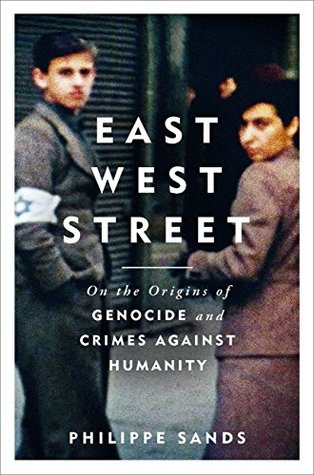More on this book
Community
Kindle Notes & Highlights
Read between
February 5 - May 1, 2018
This was a Fremdenpass, a travel pass, issued to Leon because he’d been stripped of his Polish identity and made stateless (staatenlos), deprived of nationality and the rights it offered.
when the Austro-Hungarian Empire collapsed, the 1919 Treaty of Saint-Germain determined that all Galician files were to remain in the various successor states. Most have been lost.
The war caused large numbers of Jewish refugees to come to Vienna in search of a new home.
The new inhabitants of Vienna made their way to the Jewish districts of Leopoldstadt and Brigittenau.
An obscure treaty signed in June 1919 on the same day as the Treaty of Versailles, the Polish Minorities Treaty, made Leon a Polish citizen. That treaty had been forced on Poland, imposing obligations to protect minorities. An early precursor to modern human rights conventions, Article 4 provided, in effect, that anyone born in Lwów before the treaty was signed in 1919 would be deemed a Polish citizen. There were no forms to be completed, no applications to be made. ‘Ipso facto and without requirement of any formality’, the treaty declared, Leon and hundreds of thousands of other citizens of
...more
At the end of January 1933, President Paul von Hindenburg appointed Adolf Hitler chancellor of Germany.
Four months later, on Saturday, 13 May 1933, representatives of the new German government made a first visit to Austria.
The Austrian chancellor, Engelbert Dollfuss, soon banned the Austrian Nazi Party, and other measures followed. Dollfuss was dead a little more than a year after Frank’s visit, murdered in July 1934 by a group of Austrian Nazis led by Otto von Wächter, a local lawyer who would, a decade later, as Nazi governor in Lemberg, create the Waffen-SS Galician Division.
On the morning of 12 March 1938, the German Wehrmacht entered Austria and marched into Vienna, met by huge and enthusiastic crowds.
Three days later, Hitler arrived in Vienna to address a vast crowd on the Heldenplatz.
and described Leon as ‘stateless’. He’d lost his Polish nationality – as suddenly as it was obtained in 1919 – a consequence of the Polish foreign minister Józef Beck’s September 1934 speech to the Assembly of the League of Nations, renouncing the 1919 Polish Minorities Treaty. The loss of status would have one unintended benefit: as a stateless individual, Leon could only be issued a foreigner’s passport (a Fremdenpass), which was not required to be stamped with a big red J, the mark of a Jew. Leon’s passport, as well as that of his daughter, was not stamped with a red J.
teenagers of the Gardes Françaises (a French equivalent to the Hitler Youth)
the short-lived West Ukrainian People’s Republic, which existed for less than a month, in November 1918
The division was agreed to by Stalin and Hitler in the secret Molotov-Ribbentrop Pact, a non-aggression agreement that divided Poland with a line drawn to the west of Lemberg and Zółkiew, leaving Leon’s family safe on the Soviet side. In June 1941, Germany broke the pact, launching Operation Barbarossa. Its forces moved eastward at speed, so by the end of June, Zółkiew and Lemberg were under German control.
In September, an ordinance was passed requiring all Jews in Vienna to wear yellow stars. The use of public transportation was curtailed as they were prohibited from leaving the area where they lived without authorization.
Fremdenpass, a travel pass valid for one year, allowing travel in and out of the Reich. It bore no red J stamp, despite her being registered as a Jew.
I was surprised that Rita, a registered Jew, could be issued so late a document that allowed her to travel. An archivist at the US Holocaust Memorial Museum in Washington described the journey as ‘improbable’, setting out the multitude of steps she would have had to go through to obtain the Fremdenpass, obstacles imposed by Adolf Eichmann.
A stateless person like Rita, who lost her Austrian nationality after the Anschluss by reason of her marriage to a now-stateless Jew, was required to take even more steps than others. To leave Vienna, Rita must have had help from someone with connections.
‘My mother’s letter went on. “He is a Jew, but I think he has some heart.”’ Niklas paused. ‘She wrote that,’ Niklas exclaimed, ‘can you imagine, that “he has some heart”? The end of the Nuremberg process, from the radio my mother knew all the crimes the Germans had done, yet she was still able to write such a sentence.’


